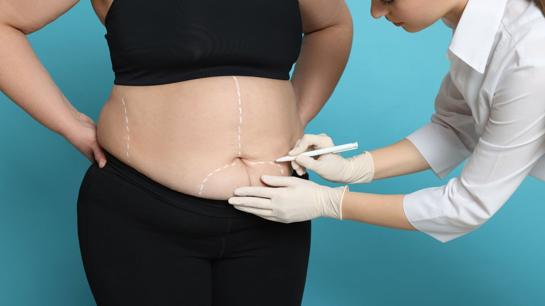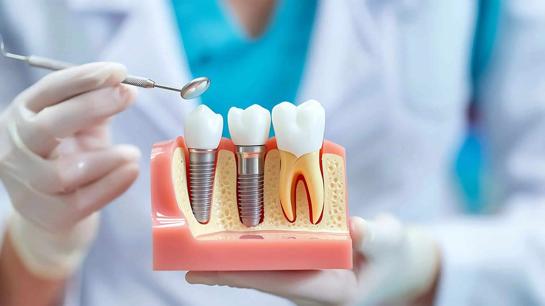Egg Freezing Abroad: The Human Perspective on Taking Control of Your Fertility Journey
Let’s be honest—most people don’t plan to type “egg freezing abroad” into their search bar. But life happens. Maybe you looked up one day and realized your priorities shifted, or your timeline just isn’t lining up with everyone else’s. Maybe you’re balancing a bucket list, a career, or finding the right partner—sometimes all at once, sometimes none of the above.
Whatever brought you here, you deserve answers that are both practical and honest. We’ll walk through what egg freezing actually is (no jargon), who tends to look into egg freezing abroad, what you need to watch for, how the process works, and why more people are making this choice. No hype—just the unvarnished truth you’d expect from an old friend who’s really done their homework.
What Is Egg Freezing (Oocyte Cryopreservation)?
Egg freezing—official name, oocyte cryopreservation—is essentially pausing your biological clock. The process collects some of your eggs (oocytes), freezes them with advanced methods, and stores them until you’re ready to try for a pregnancy down the line.
Why do it? Because egg quality and quantity decline with age—often sharply after 35. By freezing younger, healthier eggs, you’re storing up some reproductive potential for later, whether next year or ten years out.
There are a few methods, but most clinics now use “vitrification”—a flash-freeze technology that skips the ice crystals and gives your eggs the best odds when thawed.
A lot of people confuse egg freezing with embryo freezing, but with oocytes, your eggs aren’t fertilized, so decisions about partners or sperm can come later.
Who Actually Considers Egg Freezing Abroad?
You might imagine it’s just one “type,” but honestly, egg freezing abroad brings out every kind of planner and every kind of wildcard:
- Women who want kids but aren’t ready (career, travel, no partner, medical reasons, the list is long)
- Cancer patients or those facing chemo who want to bank fertility ahead of treatment
- Folks in their 30s and even early 40s who suddenly realize “just waiting” isn’t an option anymore
- People priced out at home—when bills are $10,000+ per cycle, and storage is a fortune
- LGBTQ+ singles and couples looking for reproductive options
If you check forums or ask any fertility abroad coordinator, you’ll realize the crowd is more global—and more varied—than the stereotypes suggest. And often more pragmatic than you’d guess.
Risks and Complications: The Realities Behind the Sales Pitch
Every procedure has its flip side. Egg freezing abroad is considered safe, but there are bumps worth knowing about:
- Hormonal side effects: Mood swings, bloating, mild headaches—most pass, some linger, a few are unexpectedly intense.
- Ovarian Hyperstimulation Syndrome (OHSS): Rare, but a risk when you respond too well to medications. That part caught me off guard the first time a nurse mentioned it.
- Procedure-related: Egg retrieval is minor surgery—it comes with small risks of infection, bleeding, reaction to anesthesia.
- No guarantees: Not every egg survives thawing later, and not every thawed egg gets fertilized.
- Travel headaches: Long flights after retrieval when you’re sore, language mix-ups at the local pharmacy, or cultural differences in clinics — all real, all manageable with planning.
Complication rates abroad, in reputable clinics, generally match those at home. But support networks matter: research who you can call, English-speaking staff, and follow-up scenarios before you ever leave home.
Prepping for Egg Freezing Abroad
Here’s what most glossy guides forget: prep feels like sprinting while carrying a dozen eggs.
- Medical records: Hormone tests, ultrasounds, infectious disease screening. Gather way more than you think you’ll need.
- Consultation: Often starts online (video or phone), with a real talk about meds, cycles, and what you want from egg freezing abroad.
- Travel logistics: At least two weeks on-site, depending on cycle timing. Direct flights help. Book flexible accommodations—you might need to adjust plans last minute.
- Medication: Clinics usually supply, but crossing borders with needles and drugs means getting medical letters and checking local rules.
- Diet and lifestyle: Most clinics recommend gentle exercise, no excessive caffeine, very limited alcohol, good hydration.
- Mental check: Get comfortable with self-injections (YouTube helps). Arrange for company the day of the retrieval. Pack stretchy pants, snacks, chargers, and patience with time zones.
How Egg Freezing Abroad Actually Happens
Let’s break it down:
- Stimulation phase: You’ll use daily hormone shots for around 10–14 days. Ultrasounds & bloodwork track how follicles (potential eggs) are growing.
- Trigger shot: Scheduled when follicles reach the right size; this final shot prepares the eggs for retrieval.
- Egg retrieval: A minor, quick operation done with light anesthesia. The doctor uses a thin needle to collect eggs via the vaginal wall. It’s outpatient—most walk out within hours.
- Vitrification: The embryologist inspects the eggs, picks the mature ones, and snap-freezes them in liquid nitrogen.
- Storage: Your eggs are stored at ultra-cold temps, usually paid yearly. Many clinics now transfer your eggs afterward if you prefer home-country storage.
On average 8–20 usable eggs are collected per cycle, but this wildly varies by age, health, and a sprinkle of luck.
Recovery and Aftercare When You’re Far from Home
Let’s get specific:
- Day of retrieval: Soreness, mild cramping, a bit groggy. Most feel fine after napping, but heavy workouts or big adventures? Skip ’em.
- First week: Bleeding and bloating typically resolve. You’ll likely want loose clothes and low-key days.
- Egg storage: Confirm your eggs are safely banked before you jet home. Keep a copy of the storage contract and all emails.
- Emotional side: The rush of having “done something concrete” can give way to relief, pride—or even low mood. It helps to have someone (friend, partner, online group) to check in with.
Expected Results and Effectiveness: Manage Hopes, Not Just Stats
- Survival rate: With modern flash-freeze tech, >90% of mature eggs survive thawing.
- Fertilization: About 70–80% of survived eggs fertilize with ICSI down the line (if sperm quality’s good).
- Birth rates: A lot depends on your age at freezing—not every egg equals one baby. Generally, success rates go down as age at freezing goes up.
- Emotional wins: People often report feeling a bit lighter—less pressure to “fit the timeline,” more options for later.
It’s normal to feel disappointment that “insurance” is never a guarantee. Still, for many, the option to try is worth it.
Alternatives to Egg Freezing Abroad
- Embryo freezing: If you have a partner or sperm chosen, embryos freeze/thaw even better than eggs. May feel like too much commitment for some.
- Ovarian tissue freezing: Considered experimental, typically for young cancer patients.
- Scheduling pregnancy sooner: For some, this is possible; for many, it’s not.
- Waiting it out: Riskier if approaching 40+, but sometimes life makes you play the cards as dealt.
- Adoption/fostering down the road: Not fertility preservation, but worth being honest about the big picture.
Why Egg Freezing Abroad? The Unpolished Upsides
- Cost savings: Often 50–70% lower than US/UK pricing, even after travel.
- Fast access: Decide and cycle in weeks, not months.
- Expertise: Many leading fertility centers abroad offer cutting-edge labs and experienced staff, often used to working with international patients.
- Integrated care: Packages frequently include airport transfers, English-speaking coordinators, accommodation help, and personalized nurse or doctor check-ins.
- Privacy: Some want space to process and start fresh; others just want less “chatter” from their local circle.
- Flexible options: Move eggs home later, keep them abroad, or coordinate with clinics in multiple countries.
It’s common for people to say the biggest relief was just knowing they weren’t out of options.
FAQ: Real Questions, Straightforward Answers
- Is egg freezing abroad painful?
- More annoying than painful—hormone shots are a daily hassle, but most tolerate them. Retrieval itself is quick and low on discomfort (sedation helps).
- How long am I in the hospital?
- Usually a half-day for retrieval. Most are back at the hotel or sightseeing same afternoon.
- How soon can I travel or work again?
- Plan to stay at least a day after retrieval, more if you’re feeling rough. Most fly home within 48 hours and are back at work within days.
- Are the results permanent?
- Eggs can be kept frozen for 10+ years, sometimes longer. But fertility declines with age—pregnancy odds decrease the older you are at freezing.
- Is egg freezing abroad safe?
- In reputable centers, yes. Check qualifications, read all the small print, and ask about what happens if plans change.
Final Thoughts
Egg freezing abroad isn’t about “giving up” or putting your life on hold (though it can feel like that some days). Sometimes, it’s the most practical, hopeful step available—one that lets you buy time and rethink “too late.”
If it feels complicated, that’s normal. If it feels empowering, even better. And if you have questions… good. That’s what wise people do when they’re shaping their own possibilities, not just waiting for them.
Take it at your pace. Ask every question, twice if you need to. There’s more than one right path—and you get to choose yours.

















